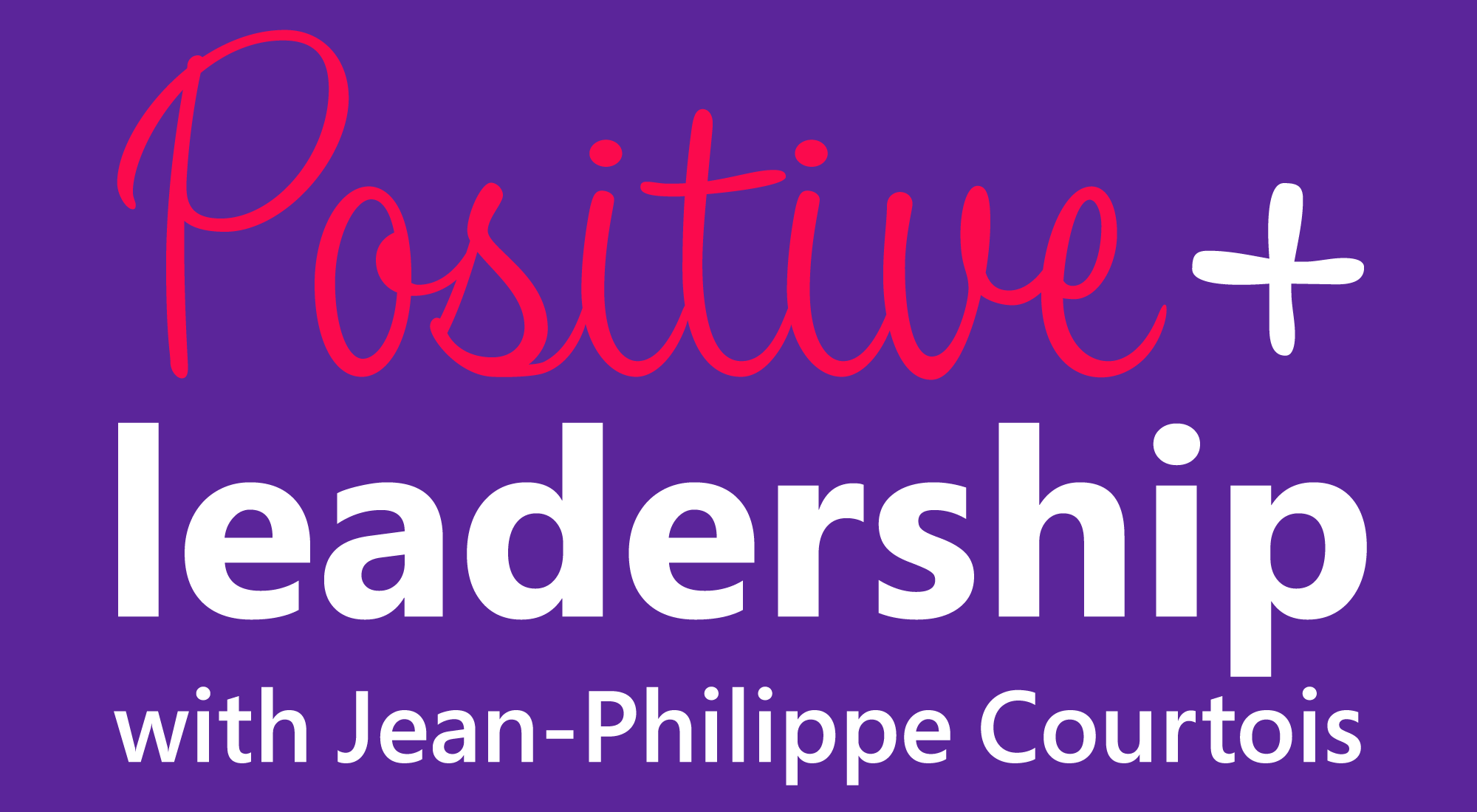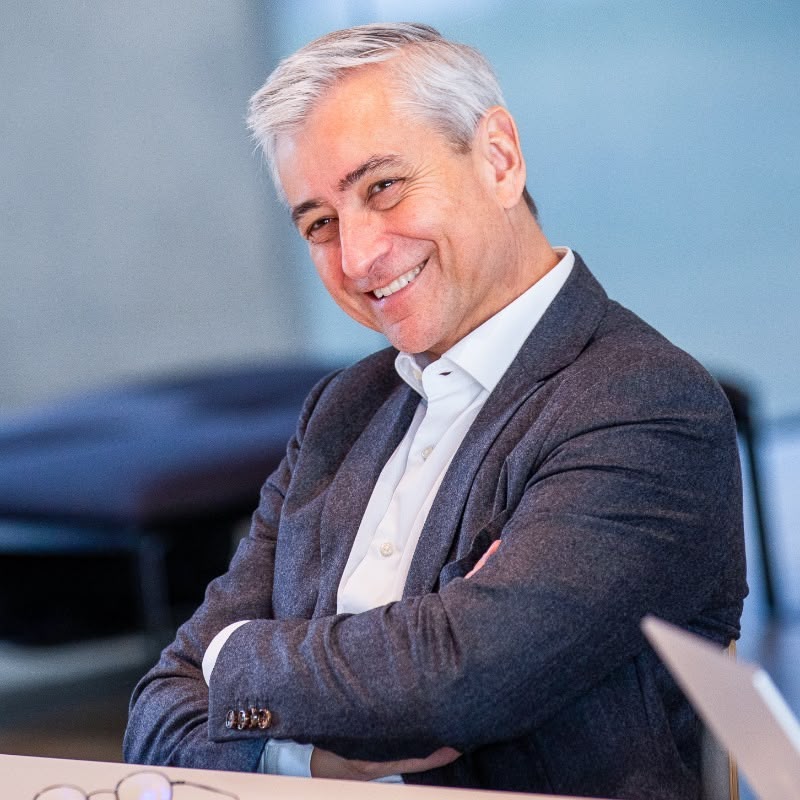30 May 24
How Positive Leadership encourages reinvention

Welcome to the Positive Leadership & You newsletter. This month, we consider how Positive Leadership can help you to reinvent yourself, others and the world.
To reinvent yourself is to embrace possibility and growth. While it can sound daunting, we often reinvent ourselves in our professional and personal lives without even realizing it. That might be by taking a new job or learning new skills.
Taking intentional control of this process requires self-awareness. However, it can be difficult to notice what Dr. Caroline Leaf calls the “’I’ factor”, if we spend too much time living through the lives of others.
Caroline, a neuroscientist and mental health expert, is dedicated to helping people manage their mind so they can take control of their own stories. She said to me, “No matter what you've been through, you can get through it. You can change. You can transform.”
To achieve this, maintaining a healthy mind is crucial. This is why Caroline developed the Neurocycle method which involves five steps carried out over 63 days:
- Gather awareness of your emotional, physical, and mental state.
- Reflect on those feelings and ask yourself why you have those emotions.
- Write down your reflections to help organize your thoughts.
- Recheck your thoughts and find the roots of the issue.
- Active Reach - create a statement or action to carry you through the day and help you move in a positive direction.
The bottom line is that your mind is your life force. If you know how to use it, you can reinvent yourself in new and exciting ways. I loved hearing to her insights, which you can listen to in detail here:
Managing your mind (with Dr. Caroline Leaf)Herminia Ibarra , Professor of Organisational Behaviour at the London Business School, is another expert in reinvention. In her book Working Identity, she provided a new framework to help people reinvent their careers. I recommend reading it if you feel stuck, burned out or simply want to grow.
But to start, here are three key takeaways from my conversation with her:
- It is in doing that we actually start to change how we think.
- Start acting positive first, and then we can start thinking positively, in that order.
- Get outside of your comfort zone and don't let the way you've done things in the past define you.
The Michelin-starred chef Thierry Marx is a leader whose life journey from paratrooper to pioneer of molecular cuisine to martial arts practitioner, exemplifies these lessons. It is an extraordinary story of personal and professional reinvention and he’s gone on to share what he’s learned with others.
Growing up in a tough neighborhood, Thierry saw a society where many people did not have the freedom to reinvent themselves. But from his own experience, he knows everybody has the potential for it. This led him to create cooking schools for disadvantaged people who find it difficult to find employment. Today, the "Cuisine mode d'emploi" and "Boulangerie mode d'emploi" schools have an incredible 92% success rate in getting people back to work.
How? Thierry attributes it to three things:
Rigor refers to the individual's project…
Recommended by LinkedIn
Commitment refers to letting go of the past…
Regularity refers to being present and on time for the 12 weeks of the program.
Thierry's approach to reinvention is not to make people "conform," nor to necessarily make them into cooks, but to give them a professional project that empowers them to break out a cycle of poverty, and look "vertically," above the horizon.
If you speak French, I recommend listening to the podcast now, he is an inspirational guest:
[FR] Inspirer la rigueur et la discipline (avec Thierry Marx)What Thierry has successfully created is a system that incentivizes people to learn new skills, stick with it, and reinvent themselves in the process. More broadly, it is a conscious decision to address social inequality.
For Harvard Business School professor Ranjay Gulati , the pursuit of profits without purpose is no longer a sustainable business model. This is closely tied with purpose. But taking purpose beyond a mission statement and embedding it into teams takes work – and it starts with leaders.
Consider Nandan Nilekani, the co-founder of Infosys, who underwent a late-career reinvention to play a central role in India's digital transformation. By leading the rollout of Aadhaar, the world's largest and most ambitious digital ID system, he provided each Indian resident with a unique 12-digit identification number linked to their biometric and demographic information. This was one of the most remarkable social projects ever undertaken. How did he achieve it?
I believe very strongly that part of the role of leaders is to visualize a future, a future which is ambitious, which is audacious, and yet plausible. And then articulate that and excite and energize people towards that go.
Big goals stretch our beliefs about what is possible and, as Nandan says, create a shared sense of purpose that keeps teams focused on what truly matters. In my experience, even when we fall short, the payoff is worth the risk.
To hear more about Nandan's incredible story, listen here:
Achieving ambitious goals (with Nandan Nilekani)At the dawn of a new era with AI, and with big issues like climate change affecting us all, reinventing our business, society and even economics with purpose at its heart, has never been more important.
And if you’re looking for practical, actionable ways to find your own way to build positive change, I recommend listening to the final episode of my 9 Lessons of Positive Leadership series, with insights from Bill Drayton , Paul Polman and Rana Dajani :
9 Lessons of Positive Leadership: Lesson 9 - Building ChangeI hope this newsletter has inspired you to reflect on the power of reinvention within yourself, and how you can cultivate this belief to affect change in others and the world.
All the best.
-jp







